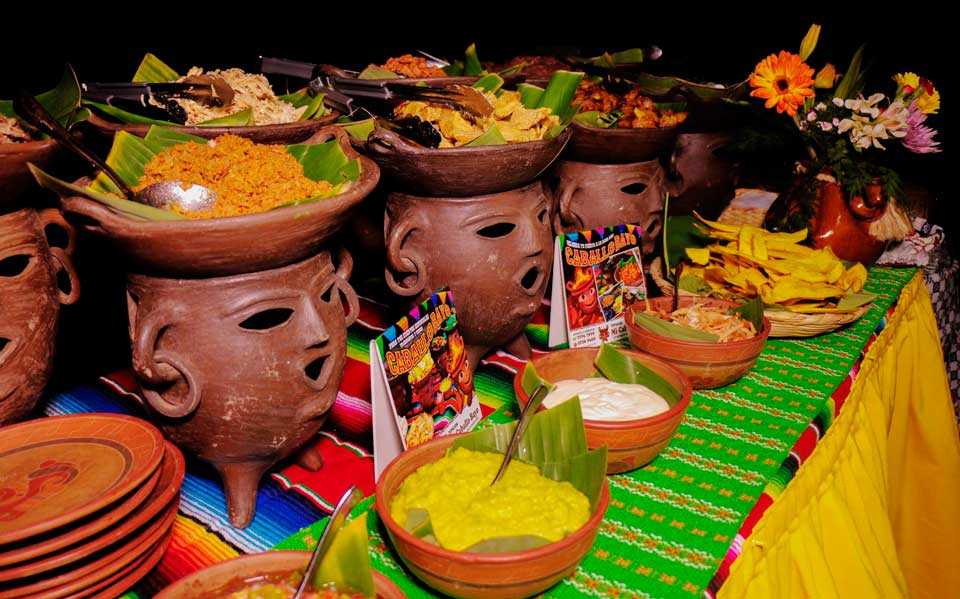Columbus Day: Day of Indigenous resistance in Nicaragua.
Celebrating the Columbus Day (Day of Indigenous Resistance)
Every October 12th, Nicaragua and many other nations around the world celebrate this date. This day commemorates the meeting of two worlds, the European and the American, which occurred with the arrival of Christopher Columbus to America in 1492. In Nicaragua, this festivity transforms into a colorful and exciting celebration that highlights the country's rich cultural heritage and ethnic diversity. Here, we will explore some of the most exciting activities that take place during this celebration.
The date is widely known as the "Columbus Day," but due to ideological debate, it is also known as "Hispanic Heritage Day" or "Day of Indigenous Resistance." To learn more about this debate, click here.
--- The Meaning of Indigenous Resistance Day in Nicaragua is as follows:
Recognition of History: This celebration serves as a reminder of Nicaragua's pre-Columbian history and the impact of the arrival of colonizers on indigenous populations. It's an opportunity to honor the memory of those who bravely resisted oppression and exploitation.
Promotion of Indigenous Culture: Indigenous Resistance Day is an occasion to highlight and preserve the rich cultural heritage of Nicaragua's indigenous communities. Cultural activities such as dances, music, and crafts that reflect the traditions and identity of these peoples are promoted.
Awareness and Education: The date also serves an educational purpose, aiming to inform the Nicaraguan population about the history and culture of indigenous people, while promoting respect for their rights and their contribution to society.
Advocacy for Indigenous Rights: Indigenous Resistance Day is an opportunity to remember the challenges that indigenous communities in Nicaragua still face today, such as defending their lands, preserving their natural environment, and promoting their human rights.
Activities
Parades and Traditional Dances
An integral part of this celebration is the parades and traditional dances that fill the streets of cities and towns. In Managua, the capital of the country, and in other major cities, you can enjoy colorful parades featuring students, indigenous communities, folk groups, and more. Traditional dances, such as Palo de Mayo and Güegüense, are performed by talented dancers wearing elaborate costumes and traditional masks, adding an authentic touch to the celebration.
Gastronomic and Craft Fairs
Food and art are two fundamental elements of Nicaraguan culture, and during Indigenous Resistance Day, they can be enjoyed in abundance. Gastronomic fairs offer a wide variety of traditional dishes such as vigorón, nacatamal, and indio viejo. Additionally, you'll find typical sweets and beverages like fresco de cacao and pozol. At craft fairs, you can purchase handmade products by talented local artisans, from ceramics to jewelry and colorful textiles.


Music and Dance Festivals
Music and dance are an integral part of Nicaraguan culture, and during Indigenous Resistance Day festivities, there are numerous concerts and festivals to enjoy. From folk and traditional music to modern bands, the musical diversity is impressive. Don't miss the opportunity to join in the fun and learn some traditional dance steps at the celebration events.
Cultural Events and Conferences
If you wish to delve deeper into the history and culture of Nicaragua, many cultural events and conferences take place during this celebration. Historians and experts offer talks on Columbus' arrival and its impact on the region, while museums and cultural centers offer special exhibitions and educational activities.
Visits to Historic Sites
This day is the perfect opportunity to explore Nicaragua's historic sites, such as the ruins of León Viejo, a UNESCO World Heritage Site, or the colonial city of Granada. These places offer a window into Nicaragua's past and its colonial legacy. Typically, these locations go all out with special activities.
In summary, Indigenous Resistance Day in Nicaragua is a celebration of the country's cultural and ethnic diversity. It's a unique opportunity to immerse yourself in the richness of its heritage, enjoy its delicious food and vibrant music, and learn more about its fascinating history. If you ever have the chance to visit Nicaragua during this time of year, don't miss this exciting celebration. We assure you it will be an unforgettable experience!
October 6th, 2023